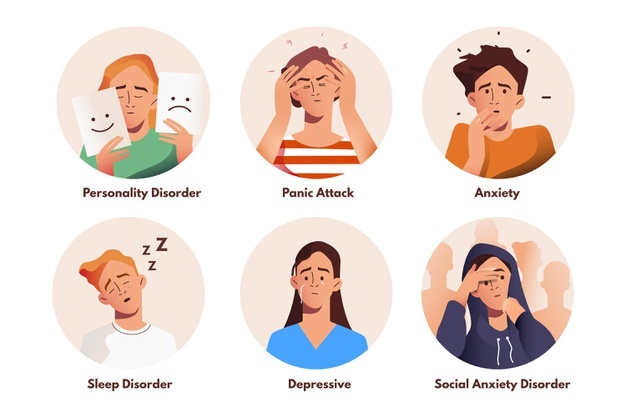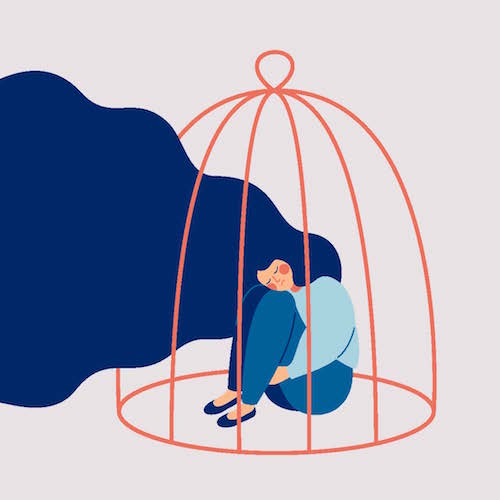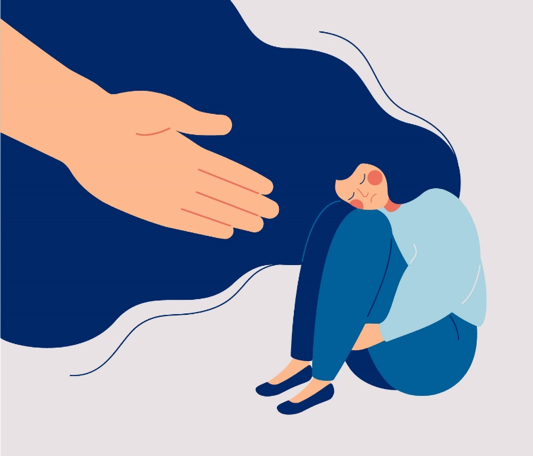As the conversation around mental health grows, we hope to shine a light on some preventative measures that can support you and your loved ones in managing mental health.

Trying to tell the difference between what expected behaviors are and what might be the signs of a mental illness isn’t always easy. There’s no easy test that can let someone know if there is mental illness or if actions and thoughts might be typical behaviors of a person or the result of a physical illness. Each illness has its own symptoms, but common signs of mental illness in adults and adolescents can include the following:

Mental health conditions can also begin to develop in young children. Because they’re still learning how to identify and talk about thoughts and emotions, their most obvious symptoms are behavioral. Symptoms in children may include the following:
Knowing warning signs can help let you know if you need to speak to a professional. For many people, getting an accurate diagnosis is the first step in a treatment plan. Unlike diabetes or cancer, there is no medical test that can accurately diagnose mental illness. A mental health professional will use the Diagnostic and Statistical Manual of Mental Disorders, published by the American Psychiatric Association, to assess symptoms and make a diagnosis. The manual lists criteria including feelings and behaviors and time limits in order to be officially classified as a mental health condition. After diagnosis, a health care provider can help develop a treatment plan that could include medication, therapy or other lifestyle changes.
It can be very difficult and heart-wrenching to see a loved one struggling with symptoms of mental illness. And often it can be hard to know how to best help and support your loved one.
Every individual is different and situations vary greatly. The person may have a specific diagnosis, or you may just have concerns about the way a person has been talking and behaving. You know your loved one and may have an understanding of what approach or support will be most helpful. However, below are a few tips and things to consider when you are trying to help a loved one.
For example, withdrawal from social interaction, unusual problems functioning at school, work or social activities or dramatic changes in sleep and appetite are possible signs. See more on Warning Signs of Mental Illness. Someone exhibiting these signs or having these experiences does not necessarily mean the person has a mental health problem, the symptoms could also be related to other issues or problems. But following up with an evaluation from a medical professional could help address any problems and prevent more serious symptoms from developing.
One of the hardest and most important steps may be just starting the conversation. You do not have to be an expert or to have the answers. Express your concern and willingness to listen and be there for the person. Don’t be afraid to talk about it. Reassure them that you care about them and are there for them. Use “I” statements. For example, use “I am worried about you…,” “I would like you to consider talking with a counselor….” rather than “You are….” or “You should….”
Try to show patience and caring and try not to be judgmental of their thoughts and actions. Listen; don’t disregard or challenge the person’s feelings.
Encourage them to talk with a mental health care provider or with their primary care provider if that would be more comfortable for them. For some people, it may be helpful to compare the situation to a physical health concerns and how they would respond. For example, if there was a concern about diabetes or high blood pressure would they be likely to seek medical care?
Remind them that seeking help is a sign of strength.

Educate yourself. The more you understand about conditions, symptoms, possible treatments and what to expect, the better you will be able to support your loved one. However, carefully consider sources of information online. As with any topic, the quality of information available online varies a great deal. (See resource list below.)
Try to anticipate and help address any potential barriers to the person seeking help. For example, find out about local resources available to help. For example, make it easier for the individual by researching potential therapists, hours, locations and insurance related issues. If you think they might be barriers, address possible issues with transportation, childcare, strategies for communicating with an employer, etc.
While you’re focusing on helping your loved one, it’s also important to take care of yourself – physically and emotionally. Reach out for help for yourself if you need it. Recognize and acknowledge the limits of what you can give. Blogger Victoria Maxwell writes: “When my mother was ill with the swings of severe depression, mania, and anxiety, I was worried as well as angry. I needed someone outside the family to freely discuss my frustrations and hurt without the fear of upsetting her. A qualified therapist offers clarity, objectivity, solutions not previously seen and a place to safely deal with the emotions rising from such difficult circumstances.”
It is important to have realistic expectations. Recovery is generally not a straight-forward process, there will be likely be improvements and setbacks along the way. With permission of your family member you can work with their treatment team to help provide support. Even if you feel your support and actions are not making a difference, they are likely making a difference for your friend or family member. You loved one may be hurting and not clearly recognize what you’re doing or may not be able to express appreciation. But knowing you are there for them can be important in helping their recovery. If you feel your loved one is at risk of hurting themselves or others, contact the National Suicide Prevention Line 800-273-TALK (8255).